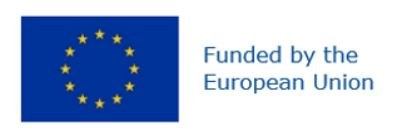Marie Skłodowska-Curie Action Postdoctoral fellowship - COLCAT
Introduction
“The Making and Unmaking of a Colonial Cattle Frontier. Capitalism, Science and Empire in Madagascar, 1870s-1970s” is a MSCA Postdoctoral Individual Fellowship analysing the transformation of cattle economies in Madagascar during the French colonial and postcolonial period. The research will be carried out at the History Department by Dr. Samuël Coghe under the supervision of Prof. Eric Vanhaute and within the research group Economies – Comparisons – Connections (ECC). The project runs from 1 January 2023 to 31 December 2024.
Project description
This project explores the transformation of livestock production, pastoralist societies, imperial economies and animal landscapes in colonial and postcolonial Africa, using the lens of the cattle frontier in Madagascar in the late nineteenth and twentieth centuries. It builds on the concept of commodity frontiers, moving sites of capitalist commodity production and extraction, to disentangle the complex interplay between global capitalism, science and empire in the making and unmaking of the cattle frontier in Madagascar. COLCAT examines why and how European (mostly French) and Malagasy administrators, entrepreneurs and veterinary experts, in often conflictual interaction with indigenous pastoralists, tried to transform pre-existing cattle economies on the island and to turn cattle into profitable commodities. It argues that the making of a capitalist and imperial cattle frontier implied a broad range of interventions, from the improvement of local breeds and new methods of cattle disease management to the sedentarisation of cattle pastoralists and the establishment of meat factories and new cattle trading networks. COLCAT analyses the rationales and dynamics of these interventions, including the manifold conflicts, negotiation processes and (intended and unintended) social, economic and ecological consequences. It thereby pays particular attention to the role of science and expert knowledge. While COLCAT’s main focus is on the profound transformations of the colonial era (1895-1960), it embeds them in a longue-durée perspective, spanning late Merina rule in the precolonial period (1870s-90s) to the postcolonial era (1960s-70s). This will facilitate teasing out the tensions between capitalist, imperial and (post)colonial expansion and development goals. Overall, COLCAT will make a substantial contribution to the history of global capitalism, the history of (French) colonialism in Africa, environmental history and the history of science and knowledge.
Objectives
These are the objectives of COLCAT:
- Bring pastoral economies and commodities into the discussion about commodity frontiers and the expansion of global capitalism, particularly in Africa
- Analyse the socio-economic and ecological conditions and effects of the cattle frontier in Madagascar
- To explore the role of new knowledge, scientific practices and technologies at the cattle frontier
Role of Ghent University
Ghent University will offer the training and resources necessary for the implementation of this research project.
Website
to be announced soon
Contact
Dr. Samuël Coghe
History Department
Prof. Dr. Eric Vanhaute
History Department
Funding info
Disclaimer
Funded by the European Union. Views and opinions expressed are however those of the author(s) only and do not necessarily reflect those of the European Union or the European Research Executive Agency (REA). Neither the European Union nor the authority can be held responsible for them.
